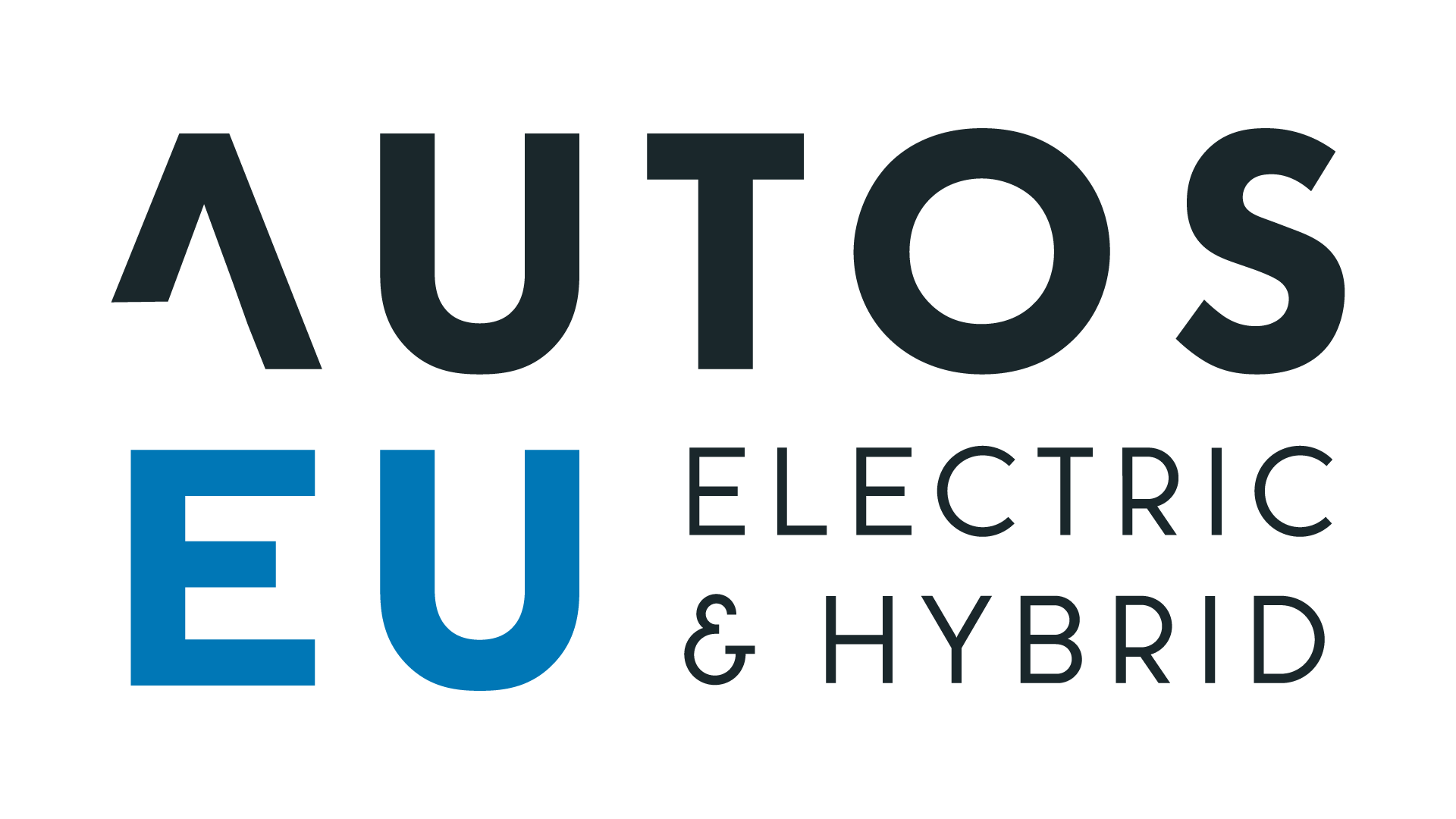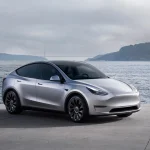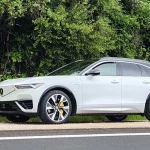
Silicon Valley Fuel Cell Start-Up Eyes Electric Car Range-Extender MarketSilicon Valley Fuel Cell Start-Up Eyes Electric Car Range-Extender Market
San Francisco based Oorja Protonics, which currently sells its fuel cells to Nissan Motor Co. for use in robotic forklifts, is developing a product intended to be used as a range-extender in pure electric or plug-in hybrid vehicles. In an interview on Friday, chief executive Sanjiv Malhotra said “We would have something in 18 to 24 months,” adding that the company is working “very aggressively” on such a range-extending fuel cell.
Malhotra said the initial difficulty he faced when he started the company in 2005 was to find an appropriate fuel for the fuel cell. He went on to say that” The biggest challenge I was looking to solve was the hydrogen problem.”
In recent years, the major automakers have spent billions of dollars experimenting with Hydrogen-based fuel cell technology, but problems with storage and infrastructure have begun to look like they may be effectively insurmountable. Oorja elected to go a different route, developing methanol based fuel cell technology as a more practical alternative. Methanol is cheap, easily available and simple to store. Also, it can be derived from various sources such as wood, grass, landfills, natural gas and coal, and existing fuel delivery infrastructure is well suited to its use.
Oorja’s current fuel cells, which generate electricity by directly converting the chemical energy stored in methanol into electrical and thermal energy, cost about $16,500, and are used by its customers to power fork lifts and materials “tugs” on factory floors. Presumably economies of scale and/or design changes for the new application are expected to reduce that price to a more competitive number for use as a range extender. By way of comparison, informed speculation puts the manufacturing cost to GM of one of its gasoline fueled range extenders for the Volt at under $1000.00. Of course, unlike an internal-combustion range extender, part of the appeal of a fuel cell is that it is essentially emissions free.
Malhotra said that Oorja will soon be announcing more product contracts and is looking to ramp up its manufacturing capacity in an effort to sell fuel cells in the “low thousand” volume range next year. Oorja plans to double its manufacturing space and is in the process of opening sales and service locations around the country.
“We have grown at an exponential pace,” Malhotra said, adding that the company is on track to be profitable in the “next few months.”
[SOURCE: EV World]
View original artcle at: “https://www.greencarreports.com//news/1035025_silicon-valley-fuel-cell-start-up-eyes-electric-car-range-extender-market”
Add a comment Cancel reply
Comments (0)
caluanie muelear oxidize parteurize
… [Trackback]
[…] Read More Info here to that Topic: autoseu.com/silicon-valley-fuel-cell-start-up-eyes-electric-car-range-extender-marketsilicon-valley-fuel-cell-start-up-eyes-electric-car-range-extender-market/ […]
helpful hints
… [Trackback]
[…] Here you will find 74818 more Info on that Topic: autoseu.com/silicon-valley-fuel-cell-start-up-eyes-electric-car-range-extender-marketsilicon-valley-fuel-cell-start-up-eyes-electric-car-range-extender-market/ […]
Categories
- Activism (1)
- Adventure (1)
- Advertising (2)
- Agriculture (1)
- Air pollution (4)
- Air transport (3)
- aluminium (2)
- Amazon (3)
- Animals (1)
- Apple (2)
- Architecture (1)
- Arctic (1)
- Artificial intelligence (1)
- Augmented Reality (1)
- Auto Detailing (1)
- autopilot (1)
- battery (31)
- Best summer holiday destinations 2022 (1)
- Bicycle (1)
- biodiversity (1)
- BMW (2)
- boat (1)
- Bus (1)
- Business (4)
- Buying Guides (1)
- car (7)
- Car industry (18)
- Car News (18)
- car rental (3)
- Car Reviews (4)
- Car sales (6)
- carbon emissions (15)
- carbon footprint (3)
- Carlos Ghosn (1)
- Cars (66)
- Central Europe (1)
- CES (2)
- charging station (11)
- Children (1)
- China (12)
- Citroën (1)
- city (1)
- City transport network (2)
- clean energy (2)
- Climate (1)
- climate change (9)
- Climate crisis (4)
- Climate emergency (2)
- climate protection (2)
- CO2 emissions (39)
- Company (3)
- Competition (1)
- Conscious travel (2)
- Contamination of water (1)
- Copper (2)
- cost of living (2)
- Cuba (1)
- Cuban politics (1)
- Cybertruck (1)
- Cycling (1)
- deforestation (1)
- delivery (3)
- Denmark (2)
- Detroit (1)
- Diesel (4)
- Diesel car (7)
- e-mobility (11)
- e-scooter (2)
- Eco travel (3)
- Eco-friendly (2)
- Ecology (1)
- Economy (1)
- El Niño (1)
- Electric (11,302)
- Electric boats (1)
- electric car (107)
- Electric Cars (499)
- Electricity (5)
- Electricity consumption (3)
- Electricity market (5)
- Elon Musk (21)
- emission (1)
- Emmanuel Macron (1)
- Energy (2)
- Energy low cost (1)
- energy transition (6)
- Entrepreneur (1)
- Environment (5)
- Environment pollution (1)
- Environmental protection (4)
- EU Policy (1)
- EU-China (2)
- Europe (7)
- Europe's energy crisis (1)
- European Commission (3)
- European economy (2)
- European Union (18)
- Euroviews (6)
- Eviction (1)
- EVs (37)
- F1 (1)
- factory (4)
- fake news (1)
- family (2)
- Ferrari (1)
- fertilizer (1)
- fine (penalty) (1)
- fire station service (1)
- flight (1)
- Flying car (4)
- Food security (1)
- Ford (1)
- Formula 1 (2)
- Fossil fuels (14)
- France (39)
- free trade (1)
- Fuel (3)
- Fuel cell electric vehicles FCEV (10)
- fuel crisis (2)
- Fuel Efficiency (3)
- fuel prices (1)
- Funeral (1)
- Gas (1)
- Gas Prices (1)
- gasoline price hike (1)
- German (1)
- Germany (8)
- Giorgia Meloni (1)
- Global warming and climate change (1)
- Good News (1)
- Greece (1)
- green energy (1)
- green new deal (1)
- Green transportation (17)
- Green Week (1)
- greenhouse gas emissions (6)
- Hanoi (19)
- Health (1)
- home (2)
- homelessness (1)
- Housing market (19)
- human rights abuse (1)
- Hybrid (2,283)
- Hybrids (116)
- Hydrogen (2)
- hydrogen vehicle (2)
- IAA Mobility (2)
- Iceland (3)
- incident (1)
- income (1)
- India (2)
- Indonesia (1)
- infrastructure (1)
- innovation (1)
- International relations (1)
- Investment (4)
- iPhone (1)
- Japan (1)
- Jobs (3)
- Joe Biden (4)
- Jubilee (1)
- Lampedusa (1)
- Las Vegas (1)
- lead petrol (2)
- Lithium (13)
- liveable cities (2)
- London (3)
- Luxembourg (1)
- Luxury (2)
- luxury goods (2)
- Luxury lifestyle (2)
- Manufacturing (5)
- Market (1)
- Markets (1)
- meat (1)
- Mercedes-Benz (39)
- Migrants (1)
- minerals (2)
- Mining (5)
- Mitsubishi Motors (1)
- Mobile World Congress (1)
- Mobility (10)
- Mobility Week (2)
- Mobility Week 2021 (1)
- Mobility Week 2023 (5)
- money (3)
- Motorcycling (2)
- Motorsport (1)
- Mountain (1)
- NASA (1)
- nature (2)
- net-zero (2)
- New technologies (6)
- Next Explainers (1)
- Next In data (2)
- Nigeria (1)
- Nissan (3)
- Norway (7)
- Nuclear Energy (1)
- nuclear fusion (1)
- Nuclear power plant (1)
- Odd (1)
- oil industry (1)
- Olaf Scholz (1)
- online shopping (1)
- Oslo (1)
- Paris (1)
- parody (1)
- Petroleum products (3)
- Peugeot (1)
- plastic (1)
- Poland (1)
- Politics (1)
- Pollution (44)
- Power Plant (1)
- prices (1)
- production (1)
- Profits (1)
- Prostitution (1)
- Public transport (4)
- Racing cars (1)
- Racism (1)
- Rail transport (2)
- rats (1)
- Raw material (1)
- Recycling (4)
- Renault (3)
- Renewable energies (6)
- renewable energy (6)
- Reykjavík (1)
- Rishi Sunak (1)
- road (36)
- Road infrastructures (1)
- Road safety (7)
- Road transport (20)
- road trip (1)
- Robot (1)
- Rolls Royce (1)
- Russia (1)
- Russia's invasion of Ukraine (2)
- Sadiq Khan (1)
- safari (1)
- Safety (1)
- Sale (1)
- sales (3)
- Scotland (1)
- self-driving (43)
- Semiconductor (1)
- Shares (1)
- Show (1)
- Silicone (1)
- Software (1)
- Solar energy (2)
- solar power (5)
- Space technology (1)
- Spain (1)
- start-up (3)
- Stock exchange transaction (1)
- Stock market activity (1)
- Stockholm (1)
- Strasbourg (1)
- Students (1)
- Summer Olympics (2)
- Sustainability (7)
- Sustainable city (3)
- Sustainable design (3)
- Sustainable development (1)
- Sustainable innovation (9)
- Sustainable technology (21)
- Sustainable tourism (4)
- Sweden (2)
- Tata Motors (2)
- Tax (37)
- Taxes (2)
- Taxi (1)
- Technology (55)
- Tesla (73)
- The Boring company (1)
- Tokyo Olympic Games 2020 (1)
- Toyota (4)
- trade (3)
- traffic (1)
- Trains (2)
- Transport (11)
- transportation (3)
- Travel destinations (1)
- Tunnel (1)
- Twitter (3)
- UBER (1)
- Ukraine war (1)
- Uncategorized (6)
- United Kingdom (5)
- United States (6)
- urban planning (2)
- Ursula von der Leyen (3)
- US politics (1)
- USA (1)
- vegan (1)
- vehicle (7)
- Video (4)
- Vietnam (19)
- Volkswagen (3)
- Volvo (2)
- waste (1)
- waste disposal (1)
- Water (1)
- Water resources (1)
- White House (1)
- wind energy (1)
- Wind turbine (1)
- Winter (2)
- work conditions (1)
- World Travel Market (1)
- Xiaomi (1)
Recent Posts
About us

Popular Tags
Related posts


Volvo EX30 in the test: Really a premium car at a volume price?

VW ID.7: Estate is not called Variant... It's a Tourer







